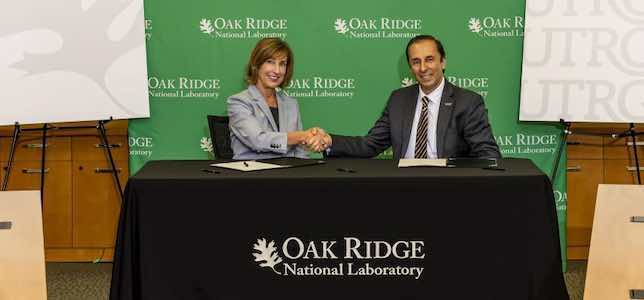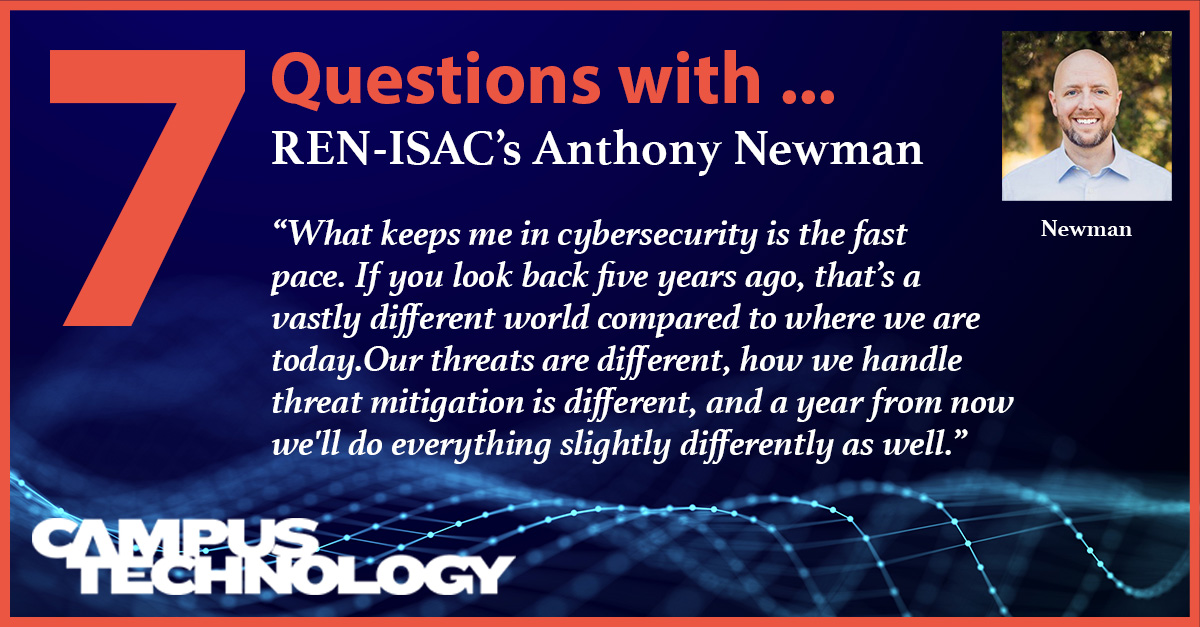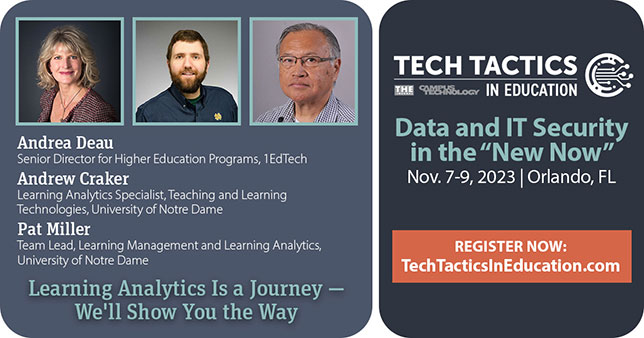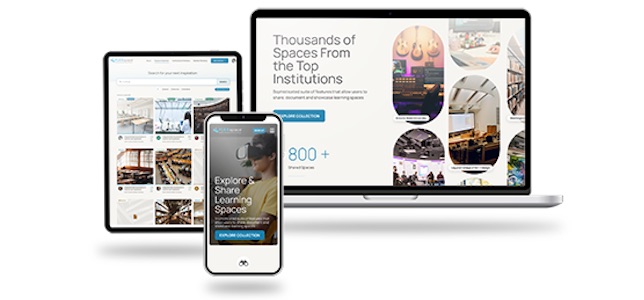
The University of Texas Rio Grande Valley has signed an MOU with Oak Ridge National Laboratory to strengthen their research collaborations and establish a program for undergraduate research and education. Here, CT asks UTRGV Senior Vice President for Research Can (John) Saygin how the MOU will be carried out and what its impact may be.

We asked the Research and Education Networks Information Sharing and Analysis Center's recently appointed executive director about today's biggest cybersecurity challenges and his goals for REN-ISAC moving forward.

The upcoming generation of learners will enter higher education empowered by AI. How can institutions best serve these learners and prepare them for the workplace of the future?

How will educators cope with the sometimes overwhelming progression of AI in higher education? Drawing from a recent meeting she and her colleagues organized, Ellen Wagner reminds us how brainstorming with colleagues can be one of the most powerful sense-making tools an educator has.

In the Wild West of generative AI, educators and institutions are working out how best to use the technology for learning. How can institutions define AI guidelines that allow for experimentation while providing students with consistent guidance on appropriate use of AI tools? To find out, we spoke with Dr. Cristi Ford, vice president of academic affairs at D2L.

How does a university take the inordinate amount of data it collects and somehow make sense of it to build strategies for driving change in the classroom? And is it worth the investment?

Open LMS Adoption and Education Specialist Michael Vaughn on the challenges and possibilities of using artificial intelligence to move teaching and learning forward.

This is going to be a big year for FLEXspace, the Flexible Learning Environments Exchange. Academic year '23-'24 will bring FLEXspace version 3.0 with a total portal redesign plus numerous new features and services.

Campus Technology sits down with David Weil, Vice President and Chief Information and Analytics Officer, Information Technology & Analytics, at Ithaca College, who will be delivering talks on both AI and data and analytics at the upcoming Tech Tactics in Education Conference, to be held Nov. 7–9 in Orlando, FL.

Among the core themes of the recently released Changing Landscape of Online Education report is that growing student demand for online and hybrid learning is moving higher education toward a multi-modal future. We spoke with Dr. Bethany Simunich, co-director of the CHLOE Project, about key takeaways from the CHLOE 8 survey and why institutions that aren't examining their online strategy may be putting themselves at a competitive disadvantage.